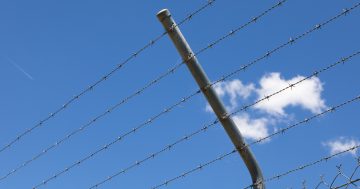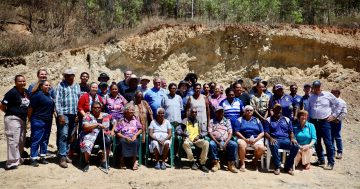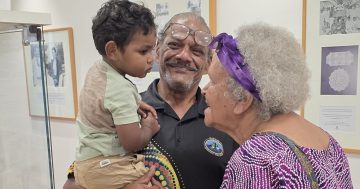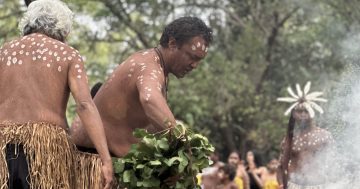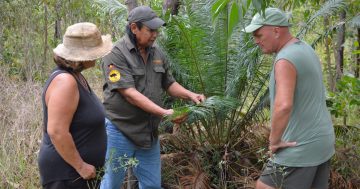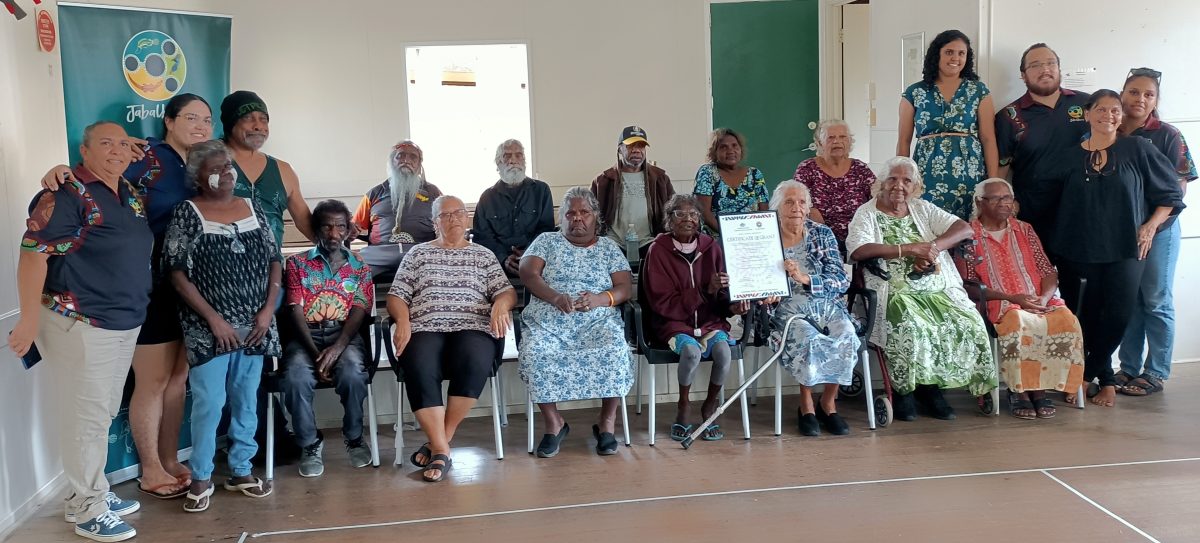
Elders and traditional owners with strong connection to Wawu Dimbi mark the area’s divestment on 16 September. Photo: ILSC.
Wawu Dimbi can look forward to a brighter, more economically sustainable future, according to the Jabalbina Yalanji Aboriginal Corporation (JYAC).
Spanning more than 176 hectares, Wawu Dimbi holds several important wetlands and vegetation connecting to the Wet Tropics World Heritage Area, providing a habitat for endangered species.
Its divestment on 16 September from the Indigenous Land and Sea Corporation (ILSC) to JYAC opens new doors for growth and opportunities.
JYAC has visionary plans for the future of Wawu Dimbi to address dispossession, rectify social problems and enhance economic opportunities within the region.
Situated on Eastern Kuku Yalanji Country, the sacred conservation space of Wawu Dimbi – meaning “place of inner spirit” in Yalanji language – is a significant cultural site for the Eastern Yalanji people.
Originally purchased in 1984, the property was transferred from the Aboriginal and Torres Strait Islander Commission (ATSIC) to ILSC in 2005.
A JYAC spokesperson said several key projects were now set to be initiated, including reforesting Wawu Dimbi and building additional housing onsite, allowing for long-term accommodation for Eastern Kuku Yalanji members.
The spokesperson said Indigenous cultural eco-tourism was vital within the region – and once the land was returned to the Eastern Kuku Yalanji Traditional Owners – JYAC’s tourism ventures including Jabalbina visitor centre and tour bus operation would boom.
JYAC chief operations officer and senior ranger Kallum Clarke said the divestment was a step in the right direction to making a positive impact on the prosperity and pride of Eastern Kuku Yalanji people who were on the path to achieving self-determination.
“It is the realisation of the aspirations of our old people who didn’t want to leave Daintree mission but were forced to. It is so important we now have this property to go back home,” Mr Clarke said.
“I’ve been thinking about what it means to our Eastern Kuku Yalanji Bama that after 30-plus years of changes in management/caretaking, Wawu Dimbi will finally be fully returned to our people.
“The land was originally lobbied back in the late 70s/early 80s by our Elders at that time, to try and help Bama return to live on Daintree River. To do farming and other aspirations those old people had for future generations.”
But he said management changes meant there was no proper business planning designed and executed.
“There was one drawn up, but it never went anywhere from there,” Mr Clarke said.
“There has already been significant reforestation on the property in the past, but it is a great opportunity to continue to regenerate the rainforests that once stood there, having a place for our Bama to return to for holidays, eventually being able to permanently live, and for further economic opportunities.”
ILSC group chief executive officer, Joe Morrison, noted the significance of the divestment, given the corporation’s 20-year history with the property.
“Wawu Dimbi has finally been returned to its rightful Traditional Owners, the Eastern Kuku Yalanji people, who will manage and care for this Country in a respectful and profound way,” Mr Morrison said.
“We know this divestment will only lead to greater successes and promising outcomes for Wawu Dimbi, JYAC and the local community.
“Witnessing this sacred land be divested into the capable hands of JYAC is an honour.”


